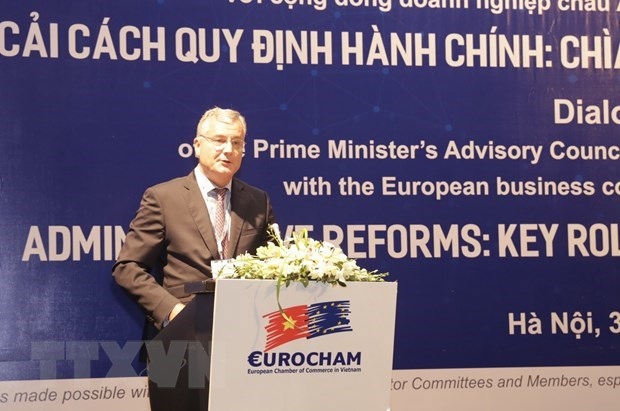European firms more positive about Vietnam’s business climate
European businesses are more positive about Vietnam’s trade and investment environment in the first few months after COVID-19, the Business Climate Index (BCI) unveiled by the European Chamber of Commerce in Vietnam (EuroCham) on July 22 showed.
Accordingly, during the COVID-19 pandemic, when social distancing and travel restrictions brought normal business operations to a halt, the EuroCham BCI fell to its lowest-ever score of 27% in the first quarter of 2020.
However, after the Government implemented a world-leading public-health and economic response, Vietnam was able to return to business-as-usual much sooner than other countries, who continue to struggle with the impact of the virus.
As a result, the positive sentiment of European business leaders began to bounce back, recording a 7% jump between February and April to reach 34%.
The BCI also found that more than 25% of European enterprises had benefited from the Government’s postponement of tax, while around one-in-five had benefited from a reduction in rent and a suspension of social insurance contributions.
Despite these positive signs, however, challenges remain for European enterprises, according to the survey.
A large proportion, 88% of the interviewed businesses, felt negative effects as a result of the pandemic in the three months to April. Meanwhile, more than 50% said that a reduction in taxes such as corporate income tax, personal income tax and value added tax would help them emerge stronger from the crisis.
Chairman of EuroCham Nicolas Audier said, “This data is further evidence that Vietnam is one of the international success stories of the COVID-19 pandemic. It also shows that the Government’s effective and sure-footed handling has had a tangible impact on the confidence of European business leaders.”
The next challenge will be adapting to the “new normal” where COVID-19 is present in other countries but where global trade remains essential to domestic economic growth. This will require imaginative solutions to address issues such as the return of foreign experts on whom many international companies depend, he added.


